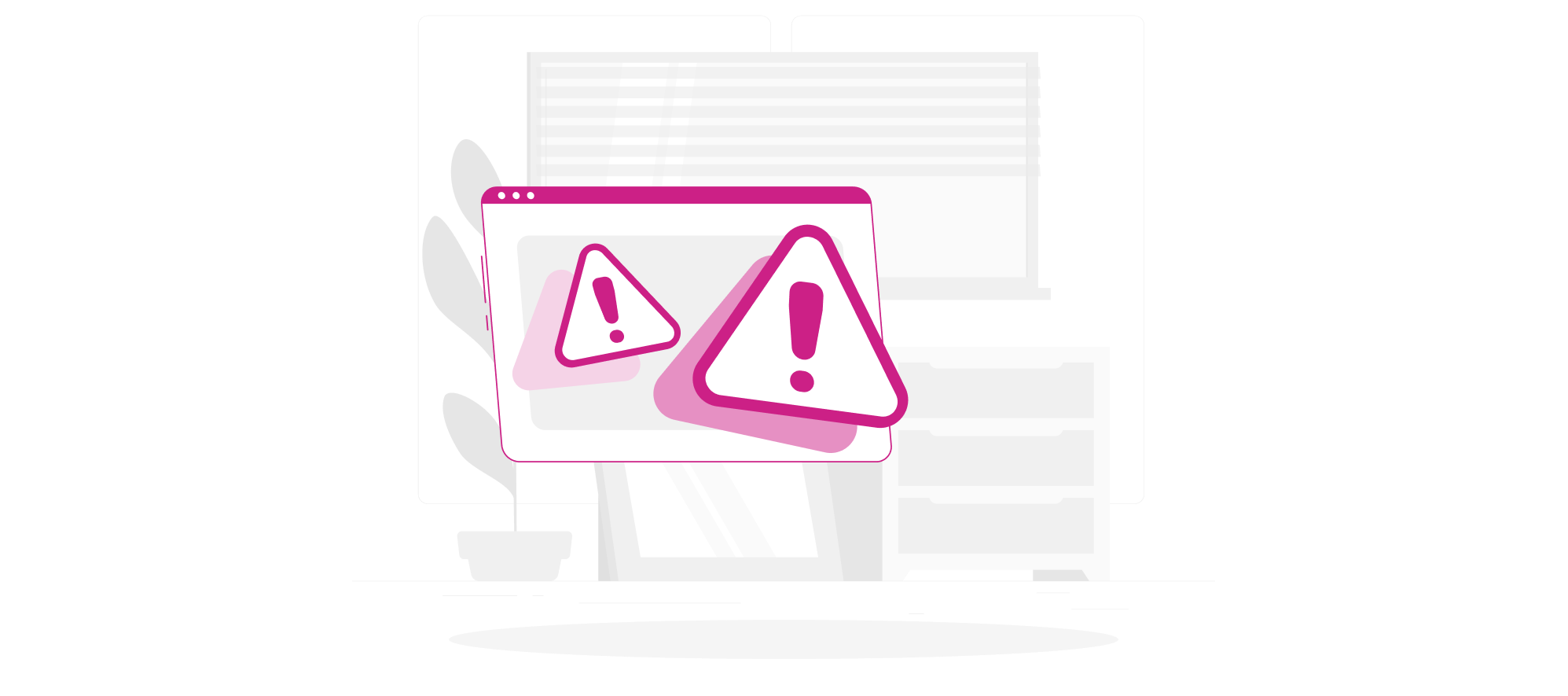These days, more and more companies outsource software development to gain access to highly skilled engineers and cut down on in-house costs.
It’s not just small businesses or non-tech firms that do it. Major companies like Slack, GitHub, and Skype rely on outsourcing to unlock such competitive advantages.
But where there’s high demand, there are also those who want to take advantage of it in a dishonest manner. If you’ve been in the industry long enough, you've probably heard at least a few outsourcing horror stories, from developers lying about their expertise to outright intellectual property theft.
One of the key aspects of outsourcing software development is understanding who to trust. In this article, we’ll delve deeper into how you can secure your development project and your investment against unreliable providers.
Common types of scams in software development outsourcing
At its best, IT outsourcing is an incredible opportunity to build products without worrying about all the moving parts. At its worst, outsourcing can be filled with false promises and low-quality work.
In fact, a lot of clients mention a lack of trust in other providers as the number one reason for reaching out to ETEAM. Here are some common deceptive practices we encountered throughout the years so you can steer away from them.

Source: storyset
Bait-and-switch
One of the biggest outsourcing risks is that what you see might not always be what you get. Beware of development companies that showcase impressive portfolios and skills during initial talks, only to assign your project to inexperienced developers once the contract is signed.
Also known as bait-and-switch, this can result in getting charged a senior developer fee for a junior’s code and work.
Identity theft
Sometimes teams or freelance developers might take on projects without having the proper technical expertise to deliver them. While this might occur because they are not aware of their limitations, in some extreme cases they might pose as reputable companies and individuals by stealing someone else’s portfolio and work.
We take pre-vetting developers very seriously and integrate risk management into our recruitment strategy from the start, to avoid similar situations.
Intellectual property theft
As you outsource development you will have to share access to important and sensitive information, including proprietary code and innovative ideas.
When working with a third party, it’s crucial they transfer you the full rights to your product. Intellectual property theft can cause significant business damage and even prevent you from monetizing your own ideas.
Overpromising and overselling
If something sounds too good to be true, more likely than not it is.
Imagine a company promising to deliver a cutting-edge application in a month whereas similar projects usually take a year to complete. Overpromising is a common deceptive practice together with overselling.
For example, a vendor might try to charge you a hefty fee in the name of server hosting or infrastructure when the same can be achieved at a lower cost.
Deceptive billing practices
Deceptive billing practices can come in many forms, from hidden costs and requesting the full project payment in advance to artificially inflating the number of hours spent on the project.
While outsourcing can undeniably cut down costs, it can also end up ruining your budget if you don’t pay attention to these areas.
Warning signs you might be dealing with a fake development services provider
Building a software product comes with a lot of decisions.
How will you meet your user’s needs?
What tech stack will you use?
But most importantly, who will build your product?
Whether you are outsourcing offshore or nearshore, you want to make sure the provider you hire is who they claim to be.
But how do you spot a scam when you are not a developer yourself?
There are things you can look out for before vetting a software development company or a freelance developer.
-
Development costs are way below the industry average: similar to overpromising, unrealistically low prices compared to the market might suggest a low quality or hidden fees later in the project.
-
Their claims are hard to verify or unclear: fake providers make it intentionally hard for you to fact-check their portfolio, clients, and track record. It might be unclear what their contribution to a project is, for example, if they built the entire application or only a part.
-
They give generic answers to technical questions: as you begin probing, you might notice they are having a hard time answering questions. They might lack the technical vocabulary or seem unaware of industry best practices, giving vague replies instead.
-
They lack an online presence: disingenuous vendors might not be very active online outside of having a website. They don’t invest in branding, social media presence, or in publishing tech content.
-
Their behavior is inconsistent and unreliable: frequent changes without a proper explanation are another red flag. These might include changes to the team composition, constantly shifting deadlines, or putting off demo meetings without giving a legitimate reason.

Source: storyset
Avoiding scams during the selection process
Before choosing a software outsourcing company to work with, you need to take some important steps to ensure success. The first step is creating a shortlist of viable candidates.
A big part of comparing vendors and conducting research is being able to identify those who have real expertise versus those who don’t.
Create a list of requirements
Having a set of criteria will not only make it easier to decide if companies you find are a good fit but it will also act as a filter for potential scams.
Don’t worry, you don’t need to have everything defined at this point. You can start with basic things like the company needs to have a verifiable address and contact information and keep adding to it.
You can check out the list we’ve compiled of 10 criteria for choosing the right software development company.
Prioritize referrals and your own research
There are a lot of ways you can go about searching for a software development partner. Try using trustworthy channels instead of relying on public announcements. Advertising publicly that you are on the lookout might not only attract candidates of various skill levels but it can also increase the risk of getting scammed.
Instead, do your research online by using popular directories and visiting each company’s website and portfolio.
Ask other businesses that worked with an engineering team and enjoyed the collaboration. Referrals are one of the most trustworthy sources as they provide a first-hand look into the vendor’s professionalism and work quality.
Do a background check
Genuine development companies usually have a professional website, an active social media presence, and positive reviews on platforms like Clutch or Glassdoor. Ratings and review directories are a great place to start because they provide an overview of the company’s entire activity, from case studies and services to how clients feel about them.
In addition to an online check, you can ask for client references and contact those companies directly to ask about their experience of working with the provider.
Similarly, you can verify if they are associated with credible industry associations or hold certifications in relevant technologies. For example, as a certified AWS Consulting Partner, you can find all our validated qualifications in the AWS Partner Official Directory.
Assess how they communicate
Even if you are in the early stages of screening and haven’t booked a meeting yet, you can still assess their credibility through how they interact. Maybe you filled out an online form on their website or sent an email asking for more details.
-
How fast did they respond?
-
Did they sound professional?
-
Were they able to give clear answers?
-
How willing were they to discuss project details?
Good outsourcing companies are not only reliable when it comes to technical know-how, but they are also reliable in their communication.
Securing your project when signing an outsourcing contract
Outsourcing software development services safely doesn’t just stop once you find a potential provider. Putting in place clear legal agreements is equally important.
Dishonest vendors will either avoid any legally binding contract or take advantage of gaps, which makes it all the more important to outline project responsibilities and terms.
Pay attention to loopholes
A loophole can be anything that is not specified clearly in the contract, whether it’s time commitment, penalties if deadlines are not met, team structure, or even rewards if development does go better than expected.
Getting things in writing is imperative as loopholes may result in significant monetary loss. A properly phrased agreement can act as an initial roadmap both you and the outsourced developers can use to set expectations and define project scope, objectives, and quality standards.
Outline features, not just timeframes
Even if you want to get to market fast, don’t just think in terms of time when you are drafting the contract, also think in terms of deliverables. Agreeing on a feature list means that the development team is more likely to prioritize a fully functional application rather than just meeting deadlines.
This will encourage them to take ownership of the work and properly test scenarios and use cases. Consider also establishing a milestone-based agreement tied to specific deliverables so that what you pay for is actually reflected in the project’s progress. Software outsourcing companies naturally work on a milestone or sprint basis according to Agile methodologies.
Include an intellectual property rights clause
As a paying client, you own the application that is being built by the development team and this should also be reflected in the contract. Including an IP rights clause can spare you a lot of headaches down the road as you begin to market and monetize the product.
Not only this, but it protects your codebase and ideas from being copied if the external team works with a competitor from your industry.
Safeguard proprietary data through an NDA
During the development process, you will inevitably share confidential information with the team. Even if your company has no trade secrets or is not keeping a revolutionary idea hidden until release, it’s still a good practice to sign a Non-Disclosure Agreement (NDA).
This will protect critical business information and other sensitive data from being revealed, as NDAs are signed not only by the outsourcing company but also by individual developers.
Don't forget about maintenance and support
While maintenance and support aren’t mandatory contract requirements, any truly reliable software outsourcing company will provide this type of service. This might include anything from handling bug fixes and monitoring applications for threats to creating disaster recovery plans.
Before signing such a contract, you should clearly agree on the duration for which the team will provide support on the software they built.
Cover all your legal tracks
A solid contract should include ways to mitigate risk and actions that you can take if things go sour like dispute resolution mechanisms.
Which governing law or jurisdiction should apply if the terms are breached?
Who will pay for the legal fees if a lawsuit ensures?
What escalation procedures do you have at your disposal if initial concerns are not solved?
Putting in place a legal framework can protect your project and investment from unpleasant incidents.
Fear nothing with the right development team
Outsourcing software development is a big decision with far-reaching consequences. While most product development agencies and developers out there are legitimate and trustworthy, there will also be those who don’t meet these standards.
Whether it’s just a matter of unprofessionalism or something as serious as fraud, it’s important to safeguard your application from the very beginning.
Working with a software development team you can trust can make a world of difference. At ETEAM we put clarity and collaboration at the heart of everything we do, from the way we track metrics and report back to our clients to how we discuss and reach agreements. With centralized dashboards, weekly reviews, and pre-discussed expenses, we offer unmatched project transparency.
But don’t just take our word for it, leave us a message and get to know how we work.








